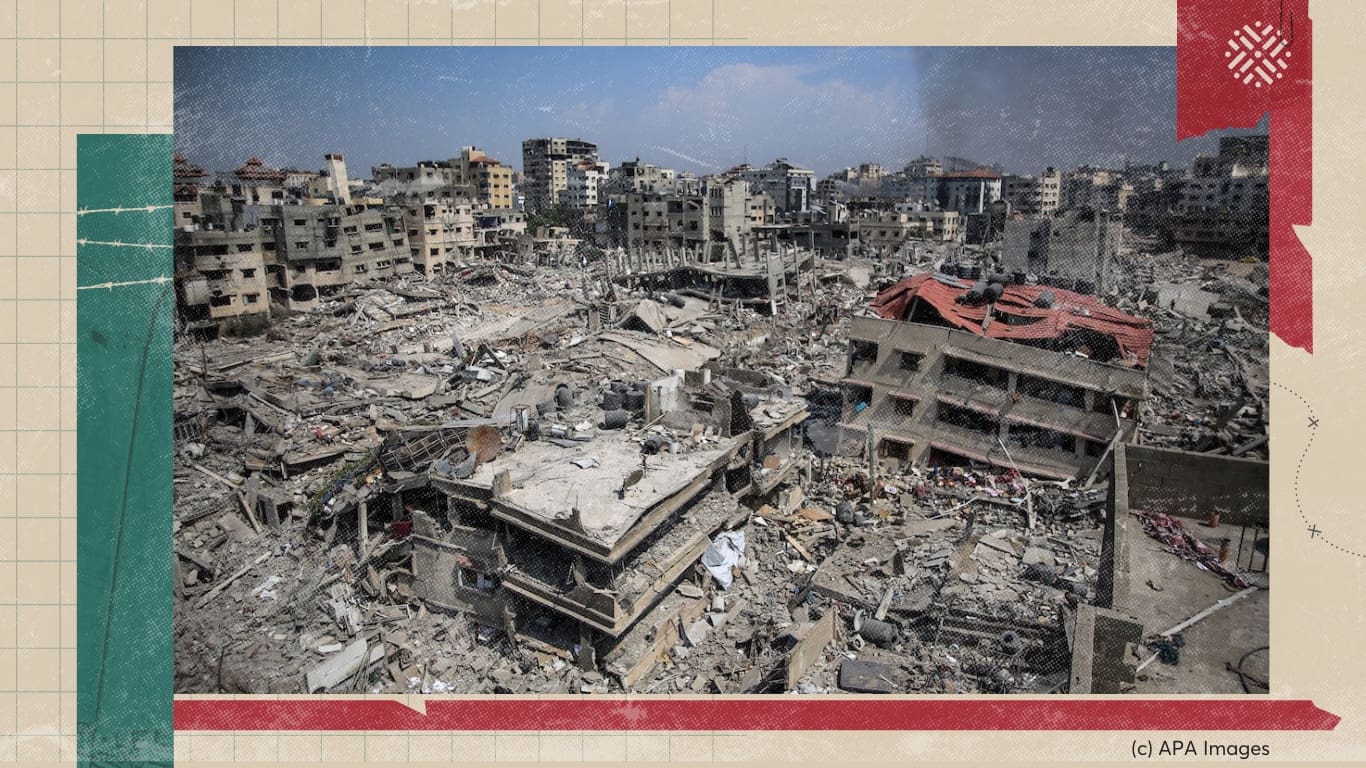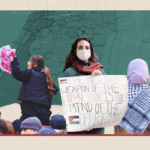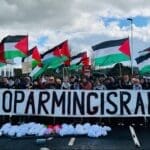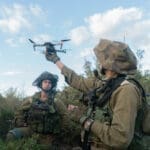
Since October 2023, Israeli forces have brutally murdered over 40,000 Palestinians in Gaza, injured 100,000, and displaced nearly all of the occupied area’s population. In that same time, occupation forces and settlers have collectively killed more than 600 Palestinians in the West Bank, and the Israeli regime has detained over 10,900 individuals, all while embarking on the largest invasion of the West Bank since the Second Intifada. Israel has likewise expanded its genocidal assault into Lebanon, killing well over 1,000 people and displacing more than one million.
These numbers do little to accurately convey the immeasurable devastation that Israel has wielded over the past 12 months. Indeed, statistics alone represent, at best, only a fraction of the horrors of genocide. In addition to reducing a community to mere numbers, they likewise fall short of revealing the root causes of the genocide, the power dynamics at play, or the long-term impact of such loss on the Palestinian people as a whole.
This Focus On highlights how Al-Shabaka has sought to respond to these gaps, drawing on Palestinian analysis from members of our policy network and guest contributors. From grounding October 7th in the broader context of Israeli settler colonialism, to interrogating Israel’s multifaceted war machine, to assessing rapidly evolving regional relations, this compilation of works represents Al-Shabaka’s ongoing effort to articulate the Palestinian condition in real time.
Framing October 7th, its Aftermath, and Future Possibilities
Al-Shabaka analysts piece together the significance of Hamas’s October 7th operation and the Israeli regime’s response. Collectively, the works below push back against the erroneous suggestion that the move was “unprovoked” and, accordingly, Israel’s reaction proportional. Rather, they locate it within the context of ongoing resistance to Zionist settler colonialism and as a moment of rupture for the partition framework, long imposed on the Palestinian people. Al-Shabaka members likewise anchor Israel’s subsequent genocide within the regime’s ultimate aim of Palestinian erasure, and put forth considerations for the future of Gaza and for the Palestinian struggle.
- An Inevitable Rupture: Al-Aqsa Flood and the End of Partition
by Tareq Baconi - The Continuation of Zionist Settler Colonialism
by Jamal Nabulsi - Genocide in Gaza: Global Culpability and Ways Forward
by Yara Hawari, Tariq Kenney-Shawa, Fathi Nimer, and Alaa Tartir - Rebuilding Gaza: Considerations for a Habitable Future
by Omar Shaban
Israel’s Genocide Machine
Israel continues to employ a range of sophisticated strategies to sustain its genocide machine. Over the past year, Al-Shabaka analysts have examined how Israel leverages disinformation campaigns and diplomatic maneuvers to justify and obscure the genocide, alongside such violent practices as targeted assassinations. They also highlighted Israel’s use of Gaza as a testing ground for weapons destined for global export, and the regime’s campaign to undermine UNRWA—a crucial institution providing life-saving services for Palestinian refugees. These tactics not only work to conceal Israel’s expanding aggression on Gaza but also distract from its escalating assault on the West Bank, often overlooked by the international community but part and parcel of the genocide. Collectively, the analysis below exposes the multifaceted nature of Israel’s genocidal agenda through manipulation, colonial expansion, and strategic misinformation.
- Israel’s Disinformation Apparatus: A Key Weapon in its Arsenal
by Tariq Kenney-Shawa - The West Bank: Settler Colonial Spillover of the Gaza Genocide
by Samia al-Botmeh, Basil Farraj, Fathi Nimer, and Abdaljawad Omar - Haniyeh’s Assassination & Israel’s Charade of Diplomacy
by Belal Shobaki, Tariq Kenney-Shawa, and Fathi Nimer - Why Scapegoating UNRWA Must Stop
by Shatha Abdulsamad - Gaza: Testing Ground for Israel’s Global Weapons Industry
with Marwa Fatafta and Antony Loewenstein. This video is available in English only.
Western Collusion
These pieces highlight how Western actors have played a significant role in fueling Israel’s genocide in Gaza. This includes through narratives and media coverage that perpetuate dangerous stereotypes, obscure the reality of the genocide, and deflect accountability. The works extend their critique to the West’s material complicity through arms sales to support Israel’s military operations as well as through temporary infrastructure projects, such as the US’s floating Gaza pier, which reflect broader colonial ambitions in the region. Meanwhile, Western actors are also involved in the ongoing suppression of Palestine solidarity movements across the world. Collectively, these analyses reveal the various ways in which Western actions and policies contribute to the continuing assault on Gaza and Palestine at large.
- The Enduring and Racist Trope of Palestinian Rejectionism
by Fathi Nimer - The Gaza Genocide in Western Media: Culprits of Complicity
by Yara Hawari - The UK and its Illusive Arms Embargo
by Shahd Hammouri - The Floating Gaza Pier: A Symbol of Future Colonial Plans
by Salman Al-Zurai’i and Mohammed Al-Hafi - Palestine Solidarity Crackdown: Challenges in the US & Europe
with Diala Shamas and Layla Kattermann
Regional Developments
Since October 2023, Al-Shabaka analysts have critically examined how the Arab world has both facilitated and resisted the Gaza genocide. In the collection below, they highlight the ways in which some Arab states have undermined Palestinian resistance and regional solidarity, and contributed to Israel’s ongoing ethnic cleansing. The analysis scrutinizes the complicity of these states in shaping a regional environment that favors Israeli aggression, including the implications of a looming Saudi-Israeli normalization deal. Additionally, the works address the dire situation of Palestinian genocide survivors in Egypt and the impact of escalating Iran-Israel tensions on regional geopolitics. Together, these contributions reveal how the actions of Arab states have impacted the dynamics of Israel’s genocidal policies and the broader regional response.
- The Arab World and the Gaza Genocide
with Elham Fakhro. This podcast is available in English only. - Palestinian Genocide Survivors in Egypt
with Ali. This podcast is available in English only. - The Perils of a Looming Saudi-Israeli Normalization Deal
by Tariq Dana - Palestinian Perspectives on Escalating Iran-Israel Relations
by Fadi Quran, Fathi Nimer, Tariq Kenney-Shawa, and Yara Hawari
For further contextual analysis, click here to access “Grounding the Gaza Genocide,” a collection of relevant past works.
Al-Shabaka: The Palestinian Policy Network is an independent, non-partisan, and non-profit organization whose mission is to convene a multidisciplinary, global network of Palestinian analysts to produce critical policy analysis and collectively imagine a new policymaking paradigm for Palestine and Palestinians worldwide.














